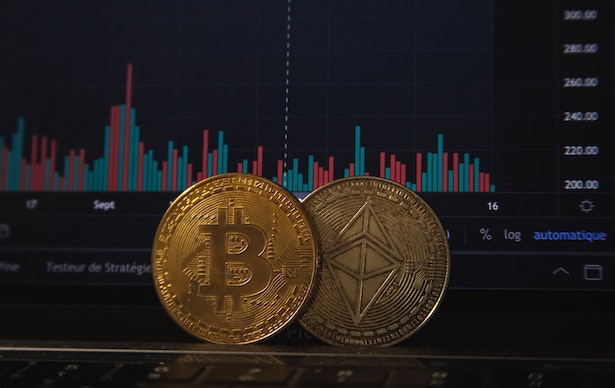How to trade cryptocurrencies safely amid the market chaos?

The price of bitcoins, like many other emerging technologies, is now quite volatile. Because of fluctuations in the prices of currencies like Ripple, Ethereum, and bitcoin, investors can win or lose a substantial sum of money in a short period. To the inexperienced, any type of trading can be a nightmare, so take the time to learn about the most common safety dangers and how to avoid them.
There are other risks for crypto investors outside market turmoil, but many may be avoided with a bit of common sense. Good internet security, thorough research, and a healthy amount of scepticism can assist ensure that your cryptocurrency venture is as safe as possible and that you don’t fall victim to any of the present boom’s fraudsters.
- Always remember to diverse your portfolio
Diversification should always be the goal, whether you’re investing in equities and stocks, gold, or Ethereum. Investors speculating on the next major issue in crypto should keep in mind that not all currencies will succeed, so it’s a good idea to have your fingers in a few pies. Also, be sure your bitcoin assets aren’t the only place you keep your money. Digital currencies can be a realistic aspect of a financial strategy if they are part of a diverse portfolio of other assets.
- Keep your computer and your data safe
Your bitcoin investments, as many cryptocurrency investors are aware, might be exposed to hackers. If you’re storing or trading in cryptocurrencies, keep your anti-virus software updated and ensure you’re not giving out any personal information online. Otherwise, it’s all too easy for your valuable investment to be taken. If you’re storing cryptocurrencies, make sure you have multiple wallets and, if possible, keep the accounts offline. A simple physical item like a USB drive can be helpful in this situation.
- Do your homework before investing in an ICO
Initial Coin Offerings, or ICOs, have grown in popularity as a mechanism for cryptocurrencies to raise capital from the public. They have, however, become a perfect mechanism for preying on the unwary, prompting the financial authority to issue a warning to investors about “these very increased risk, speculative trades.” It warns of a lack of consumer safeguards and a high risk of fraud and increasing volatility. Some ICOs are regulated by the Financial Conduct Authority (FCA); however, this is done on a case-by-case basis, depending on how they are constituted.
According to the FCA, you should extensively study any ICO before putting your money into it. According to a spokeswoman, “you should only contribute to an ICO project if you are an experienced investor who is confident about the quality of the ICO venture itself.” Consider investing or trading with a regulated service instead.
- Become immune to FOMO
When it comes to the bitcoin boom, one of the most significant hazards is FOMO (fear of missing out). However, just because your colleague or a friend has made money with a cryptocurrency does not guarantee you will. Often, when everyone is talking about a particular investment, it is too late to invest. FOMO isn’t a replacement for thorough study, a realistic evaluation of loss possibilities, and a thorough comprehension of what you’re investing in.
- Understand Leverage
Leverage could magnify both your gains and losses if you trade in cryptocurrencies through a contract for difference (CFD) or spread bet (FSB). Make sure you understand your holdings’ leverage and whether you could end up losing more money than you put in. Make sure you’re trading with an FCA-regulated firm that offers CFDs.
- Selection of the Right Digital Asset
The most crucial step is to choose a virtual currency based on the fundamental study, which includes crypto assets such as Bitcoin (BTC), Ethereum (ETH), and others. This is primarily due to the more robust use cases; whilst Bitcoin operates as a digital store of wealth and currently has the biggest volume of transactions, Ethereum is known for its vast array of decentralized applications and smart agreements.
However, many forthcoming digital assets are likely to perform similarly well, requiring investors to keep up with the latest developments. Once a digital asset has been selected, it is critical to double-check basics such as the targeted market size, current market value, and the asset’s actual utility. If it checks all the criteria, investors can be secure in their choice and proceed to invest.
- Selection of the Right Exchange
Because commercial banks do not offer digital commodities for trading, choosing an exchange to trade or engage through is critical. As a result, it’s crucial to choose a reputable crypto MT4 broker with strong safety and security regulations. On these platforms, investors would buy, hold, and sell crypto assets, and it would be ideal if the exchange also provided a digital wallet to keep the digital asset.
Some exchanges also protect the digital tokens stored in their wallet. As a result, they should be favoured due to the additional safety net. If you’re already trading on an exchange that doesn’t have this security feature, you should utilize a secure digital wallet and only access your holdings using a VPN (Virtual Private Network). When you utilize a VPN, your online connectivity is secured. Your data is encrypted, giving you an extra degree of security that ensures total anonymity for your data and crypto transactions.
Conclusion
To summarise, investors should consider digital assets as hedging and diversifying tools that can help protect a portfolio against inflation. For those prepared to participate in this new age investment market, a long-term investing strategy combined with solid trading selections can pay out well in the future. To reduce the danger of cybercrime or fraud, choose the correct crypto exchange for trading and use a secure connection. Finally, remember to keep focused on the long-term view in times of high market volatility, like with any investment, to minimize losses from short-term investing.
